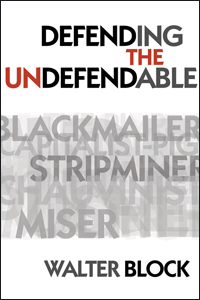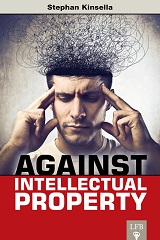Gråa och regntunga skyar sveper förbi över mig där jag tänkandes går och promenerar genom Stockholm. Havsbrisen tar tag i mig och regnet faller på mina kinder, läppar och näsa. Gråten i halsgropen, men ingen ser… Regnet tillintetgör den synliga skillnaden mellan regn och de tårar som bildas vid sidan av mina ögon.
Sneddar över torget samtidigt som fåglar flyger förbi över mitt huvud – tänker på livet.
Vi lever i ett samhälle som föredrar och värdesätter verklighetsfrånvändande handlingar och inställningar. Vart vi än ser eller vistas, fylls vår tillvaro av en känsla av att det är fel att både vara och känna sig otillräcklig. Otillräckligheten avspeglas i hur vi är tillsammans med andra människor men också hur vi ser på oss själva. Verklighetsfrånvändandet inbegriper bortvändande ifrån det att vara otillräcklig, då vi upprättar höljen, ridåer och fasader mot våra medmänniskor istället för att våga vara oss själva.
Mer regn. Blickar upp mot Katarinahissen och Södermalm, funderar samtidigt på att ta bussen men känner att det är något som måste göras. En kvinna joggar förbi. Vill också springa… fastän mycket snabbare.
Det finns en allmän uppfattning om att man ska sträva efter att vara perfekt och sträva efter det perfekta. Det-att-vara-perfekt är något som är främmande för mig och som jag ser det är det inte en nyttig inställning till livet och samhället om det-att-vara-perfekt upprätthålls genom att man vänder sig bort från sig själv. Vad är det med vår fascination för verkligheten och sken? Varför beter vi oss på ett sätt utåt och ett helt annat när vi är ensamma? Det förvånar mig faktiskt inte alls att Platon fortfarande är aktuell i vår samtid.
Det är olyckligt att vi lever i en tid då härskartekniker används i större utsträckning än förut. Det är olyckligt att vi lever i en tid då vi fortfarande talar bakom ryggen på varandra och att det är allmänt vedertaget att tala illa om någon eller något så fort det passar oss. Det är olyckligt att vi lever i en tid då vi upprätthåller konstruktioner, normer och skeva tankesystem. Det är olyckligt att vi lever i en tid då vi inte vågar vara oss själva inför andra och än mindre inför oss själva. Och det är olyckligt att vi lever i en tid då vi sätter slutenhet i det första rummet på bekostnad av öppenhet.
Samtidigt som jag sveper förbi husknuten tittar jag mig noga för så att jag inte går omkull någon. Trafikljusens lyster sprids som långa penseldrag på den regnvåta asfalten. Halsduken studsar lätt mot jackan och bröstet. Tankesvepen förstärks.
Jag tror att många människor inte uppfattar mig som intelligent. Det här må vara något jag tänkte mer på när jag var yngre, men det är enklare att genomskåda vad människor egentligen tycker om mig nu än förut. Jag har ofta svårt att förklara saker, inte på grund av att jag inte har kapacitet till det, utan att jag inför vissa människor i vissa situationer stressar och låser mig i onödan och kanske säger eller skriver hälften av vad jag egentligen ville få fram, på grund av risken för att bli avbruten. Jag uppfattar det som att jag ofta blir avbruten och har svårt att säga till om det, så jag låter det fortgå. Jag är dessutom väldigt dålig med att minnas speciella citat eller så och jag har under senare år slutat att prata om filosofi och sådant som intresserar mig på fester eller när man träffar vänner. Kan det ligga någonting i det att jag förklarar dåligt frågar jag mig själv. En strategi har varit att gå in mer för att lyssna på människor som är smartare, skarpare och coolare än jag själv. Detta berikar självfallet mitt eget tänkande, men att man ibland känner sig förbisedd.
Minnen, historia och glömska är företeelser plötsligt dyker upp i mitt tänkande. promenaden väcker tankar om alla de minnen som man inte har kvar, att tidsligheten såsom uppfattad av tillvaron begränsar åtkomsten till historia och att glömskan sprider sig till de allra finaste av minnen snarare än till dom som man helst av allt vill glömma.
Att jag pratar mindre på grund av min omgivning är ett talande exempel på hur jag i rädslan för att visa otillräckligheten upprättar ett sätt att hantera en situation, som i sig bygger på förutfattade meningar som inte gagnar mig. Istället för att bara tala fritt och strunta i vad andra människor just tycker om mig, sätter jag upp ofruktbara strategier för mig själv i mitt eget tänkande. Detta är minst sagt kontraproduktivt.
Jag försöker dölja mig i mössan, även fast jag gillar att dela känslor med andra människor. Gatan tar mig dit den leder mig, men jag tar mig genom staden som jag själv vill. Inga människor sitter på bänkarna utmed det karga hamnområdet. Jag trivs med att gå just här.
Angående mitt intresse för filosofi ägnar jag mig åt något som jag uppfattar som: det-att-överblicka. Jag har inget problem med människor som använder citat, kända filosofer, författare, tänkare etc. för att låtsas som att de är pålästa, såtillvida diskussionerna genererar något bra och personligt och jag tycker även om de personer som helt ärligt säger när de inte känner till något specifikt. Det har alltid varit ok enligt mig.
Murgrönan färgar husfasaderna röda och jag sveper handen genom löven samtidigt som jag går och tittar åt ett annat håll på människorna på andra sidan gatan.
Personligen försöker jag att göra något nytt av allt jag läser och de tankesystem, metafysiska redogörelser, logiska härledningar, texter etc. som jag analyserar, genom att låta tänkandet kretsa kring att etablera vad som kan liknas vid helheter, eller ramverk. Dessa system eller undersökningar ska inte förstås som låsta strukturer eller absoluta helheter som ordens betydelser får oss att tro, men liknelsen ligger nära till hands när jag försöker beskriva hur jag skapar mig en bättre uppfattning om någonting. Givet att mina förutsättningar är tillräckliga och att jag har fått ett grepp om ett analysprojekt, ägnar jag mig sedan åt tänka på hur man kan få systemet att implodera.
Jag tycker också om att komma på nya begrepp genom att låta hela system explodera i mina tankar i relation med samtiden, för att sedan se om jag kan skapa något originellt med sprängstoff. Om jag är lyckosam eller inte det kan jag inte bedöma. Men om jag låser in detta i mig själv, hur ska då andra få ta del av eventuell kunskap om jag håller den hemlig under fikastunden, festen eller stjärnkikandet? Andra röster är nödvändiga i och med att man vill ta isär gamla värderingar och statiska idéer när man vill korrigera tänkandets måttstock. Jag försöker bilda mig en uppfattning om filosofins spektrum.
Andas in. Andas ut. Luften känns annorlunda mellan stadsdelarna. Jag vill fortsätta att gå så länge det inte blir för mörkt och jag vill inte förstöra den fina känslan av välbehag som tillvaron nu uppfylls med.
Även våra icke perfekta sidor utgör summan av oss själva och får på intet sätt förringas. Känslorna och hur vi handlar berättar för andra vilka vi är och genom att leva genom dessa utan att förneka dom är något som är oerhört belönande för de som vågar dra undan skynket och visa sig själva. Kanske till och med strunta i att man går med glansiga ögon genom Stockholm en regnig lördag. Man inser väldigt snabbt att man aldrig kommer att utvecklas om man verkligen inte känner att man lever, det vill säga att existera och att känna samhörighet med sin tillvaro.
Kyla. Jag går längs med vattnet i gamla stan och ser bolmande skärgårdsbåtar, strosande människor och ensamma parkbänkar. Jag vill egentligen sätta mig och bara ta det lugnt ett tag, men andra kan ju undra vad jag gör där på den blöta bänken. De där okända människorna som går förbi mig med sina paraplyer, fina jackor och skor som lämnar flyktiga avtryck på den våta asfalten.
Det känns som om tillvarons tidslighet blir snävare ju mer vi kommunicerar och påverkas av samhällshetsen. För att nämna ett exempel på hur jag själv påverkar min tidslighet så tycker nästan alla av mina vänner att jag går för snabbt och kanske är detta ett tecken på att jag hackar min egen tidslighet till något som jag egentligen försöker att undvika. Kanske borde jag istället tycka om att gå långsamt.
Regnet har en lugnande effekt på mig när den kyler ned mitt känslosvall. Det blåser kraftiga vindar längs med Stockholms kajplatser. Båtar ligger töjda längs med kajen, men tanken om en lång vinter kommer till mig från ingenstans då jag tar mig förbi Berzeli Park. I dessa kvarter kunde man förr i tiden se kungar gå förbi bland vanliga människor.
Livet är för kort för att ägna sig åt kompromissande, upprätthålla tvivelaktiga relationer och att vara andra till lags. Jag kan oftast vara för snäll och jag försöker att undvika att inte hävda mig mot andra, men ibland undrar jag om det inte behövs för min egen del. Jag dras till människor som är dynamiska och öppna, jag tycker om dem för att jag helst av allt skulle vilja vara lika trevlig, imponerande och produktiv. Om dessa människor dessutom är bra på att lyssna och är underbara blir det ännu bättre. Ömsesidig respekt och öppenhet är bland det viktigaste som finns mellan människor, men det är inte alltid vi lever upp till det.
Det är inte ok att spela på andra människor för att få igenom vad man själv vill. Om jag känner att jag blir manipulerad, utnyttjad eller åsidosatt behöver jag inte alls fundera speciellt länge på vad jag ska göra i dagsläget.
Luften doftar våt skogsdunge. Stigen som jag viker in på ligger öde för mina fötter och vinden susar genom lövverket och undervegetationen. Löv faller mot min kropp.
Otillräckligheten kan verkligen spela en ett spratt. Vad behöver jag förbättra och vad gör jag bra? Vilka saker kan jag inte ändra hos mig själv? Människor har beskrivit mig som för seriös och får det att låta som ett problem snarare än en tillgång. Jag finner dock det människorna uppfattar som ”seriöst” som en av mina allra främsta egenskaper. Låt mig förklara.
I mitt tänkande och handlande finner jag det intressant att gå bortom de kunskapsgränser och förutsättningar jag först trodde att jag inte kunde ta till mig och sen ta mig förbi. Det som andra människor uppfattar som extremt, uppfattar jag som någonting positivt för att kunna åstadkomma positiva saker. Om jag intresserar mig för ett område och lägger en del tid på det, då slutar jag inte förrän jag anser att det får vara nog. Jag hoppas att vissa människor ser det som en resurs hos mig och det är även kopplat lite till hur jag är i min personlighet. Om man inte accepterar detta kan man vända sig till någon annan.
Kylan gör sig påmind igen fastän på ett annat sätt, fukten tränger in igenom mina kläder och jacka. Människorna jag möter är unga och vackra. Grusgången längs med vattnet blir helt öde igen.
Människor är inte perfekta. Vi gör massa saker som vi ångrar, t.ex. att vi är dumma mot andra människor eller rör oss mot det extremt egoistiska. Vad finns det att lära sig här och tänka mer på? Jag må ha sårat människor, varit dum och visat mina allra sämsta sidor, men jag försöker verkligen att säga förlåt och att bry mig om andra människor samtidigt som man bryr sig om sig själv mer. Ingen har någon skyldighet att tycka om en igen bara för att man ber om ursäkt för något, men själva gesten att man visar att man har haft fel eller gjort någon orätt, den kan vara osjälvisk och geniun. Jag konstaterar ändå lite dystert att man i det här fallet måste råka göra någon annan eller sig själv orätt för att visa sin öppna sida.
Kommer ut på det öppna fältet, här känner man sig totalt fri, topografin är skiftande även fast fältet breder ut sig. Möter inga människor på vägen men jag har möte med mig själv.
Jag frågar mig själv när min personlighet ”tappade” suget efter perfektionism. Det måste ha varit något jag lämnade bakom mig efter nittiotalet, dels för att jag aldrig var i närheten av att passa i den rollen och dels för att jag upptäckte att mycket av de bra grejerna uppstår i glappen mellan det man tror är ”perfekt” och sin egen självkritik. Jag får nog säga att jag är rätt självkritisk, inte på grund av att man kanske har det i sin personlighet, men att man jämför sig med de man ser upp till och beundrar. Att beundra någons sätt att arbeta med text, att sätta ihop en låt, att uttrycka sig i tal, eller att få en att känna sig sedd och förstådd, är inget problematiskt utan en mycket fin egenskap. Problemen uppstår när man vill vara minst lika grym som sina jämlikar och vänner.
Hunden ute på fältet springer glatt omkring, jag går själv också lite gladare tvärsöver ett fält som just nu känns som jag. Min tanke rör sig nu med mig i den riktning jag färdas i.
Att jämföra sig själv med andra behöver man givetvis inte göra, men man tror att man behöver göra det så att man kan hålla jämna steg med dom som man själv vill ska uppmärksamma en och tycka om en. Är det en fråga om brist? Eller är detta ännu en norm som samhället framhåller som viktig och verklig?
Tre timmar senare och regnet har trängt in till min bara kropp och kyler ned den. Halsduken bär på tappra vattendroppar som håller sig kvar i det mjuka och mysiga tyget. Min tillvaro känns nu annorlunda till det bättre. Jag flyter fortfarande fram genom staden.
Hur kommer det sig att en promenad i regnet kan sprida ett sådant lugn? Hur kommer det sig att man steg för steg får halsgråt att försvinna och negativa tankar att skingras, såsom molnen under en förmiddag i Stockholm som bär på löftet om en solig sommardag? Ibland är det inte så viktigt att man vet allt, utan det räcker med att känna hur någonting förändras till det bättre.
Det finns ett gammalt talessätt från det feodala Japan som säger att man aldrig ska tala eller skriva om sina svagheter inför andra. Jag bor dock i Sverige och väljer att inte anamma detta talessätt i och med denna tankeredogörelse.
Jag tillägnar detta inlägg till mina föräldrar, de som har lämnat oss i förtid och mina vänner.








































![[Most Recent Quotes from www.kitco.com]](https://i0.wp.com/www.kitconet.com/charts/metals/gold/t24_au_en_usoz_2.gif)
![[Most Recent Quotes from www.kitco.com]](https://i0.wp.com/www.kitconet.com/charts/metals/silver/t24_ag_en_usoz_2.gif)
![[Most Recent Quotes from www.kitco.com]](https://i0.wp.com/www.kitconet.com/charts/metals/platinum/t24_pt_en_usoz_2.gif)
![[Most Recent Quotes from www.kitco.com]](https://i0.wp.com/www.kitconet.com/charts/metals/palladium/t24_pd_en_usoz_2.gif)
![[Most Recent Quotes from www.kitco.com]](https://i0.wp.com/www.kitconet.com/charts/metals/base/copper-d.gif)
![[Most Recent Quotes from www.kitco.com]](https://i0.wp.com/www.kitconet.com/charts/metals/base/nickel-d.gif)
![[Most Recent Quotes from www.kitco.com]](https://i0.wp.com/www.kitconet.com/charts/metals/base/aluminum-d.gif)
![[Most Recent Quotes from www.kitco.com]](https://i0.wp.com/www.kitconet.com/charts/metals/base/zinc-d.gif)
![[Most Recent Quotes from www.kitco.com]](https://i0.wp.com/www.kitconet.com/charts/metals/base/lead-d.gif)


Senaste kommentarer